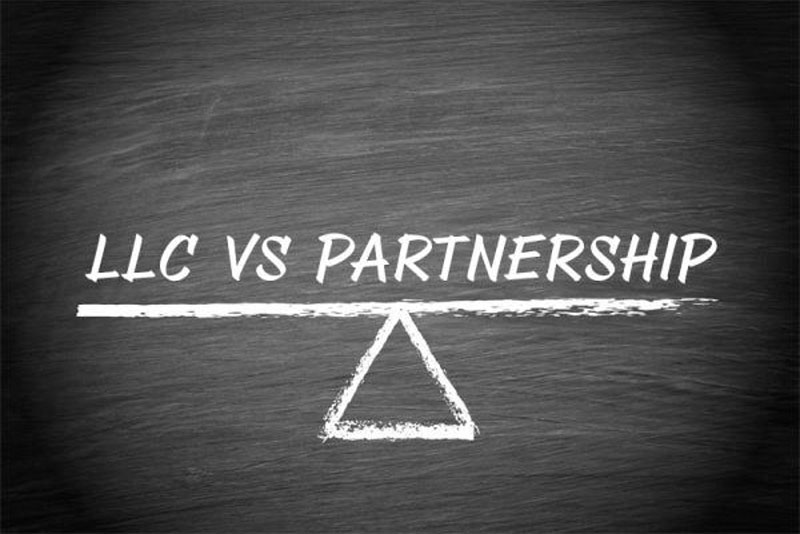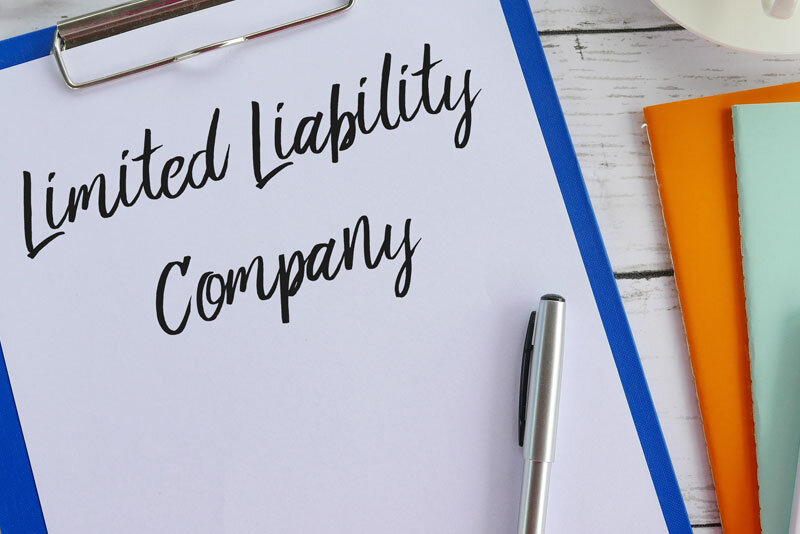The Launch Blog: Expert Advice from the CorpNet Team
How to Start a Skincare Business
If you plan to start a skincare business, there are several things you'll need to do before you start scheduling customers to come in for facials, waxing, or consultation. Here's a checklist of what you need to know if you want to know how to start a skincare business.
Multiple Ventures? How to Best Structure Your Multi-Brand Business
It's possible to create a separate business entity for each venture you start. However, this can result in excess paperwork and legal filings. And in many cases, each business may not be earning a significant amount of revenue individually, making the paperwork seem especially tedious. To save some headaches and paperwork, this article provides you with great tips to consider when dealing with multiple business types.
What Is FUTA Tax?
FUTA tax is among several employment-related taxes that businesses with payroll must pay to the government. FUTA (the Federal Unemployment Tax Act) initiated a program that works along with state unemployment programs to pay benefits to workers who have lost their jobs through no fault of their own. Employers pay the 6% FUTA tax and no portion of the tax is deducted or withheld from employees’ wages or salaries. The first $7,000 paid to each employee during the year (after deducting any FUTA-exempt payments) is subject to FUTA tax. Employers report their tax liability annually on IRS Form...
A Guide for Starting a Business in Wyoming
Wondering how to start a business in Wyoming? Get all the tips and guidance you’ll need to tackle to start and launch a business in the “Cowboy State".
What Are Texas Annual Franchise Tax Reports?
Texas Comptroller Annual Franchise Tax Reports Requirements If you have a business in the Lone Star state, you may be wondering if you must file a Texas annual franchise tax report and pay a franchise tax. The state’s report filing requirements vary according to the type of business entity, so it’s important to research what obligations your business does (or does not) need to fulfill. Most domestic entities (for example, companies registered as LLCs or corporations in Texas) and foreign entities (companies registered in a different home state but conducting business in Texas) need to...
Does a Sole Proprietorship Need Liability Insurance?
Many entrepreneurs who are the sole owners of their business (or operate a business with their spouse) choose to operate as sole proprietorships. A sole proprietorship is the simplest business structure to manage, which is why it’s popular with self-employed individuals. The sole proprietor (business owner) and the sole proprietorship (the business) are considered the same legal entity and tax-paying entity. The structure has no ongoing entity compliance formalities because it’s not a registered state entity. And tax preparation is typically easier than with other structures as...
Your Complete Starting a Business in California Checklist
Ready, set, launch! Here’s your starting a business in California checklist. This handy guide will help make sure you don’t miss a thing.
How Do LLC Owners Get Paid?
As a small business owner, how you pay yourself depends on your business’s legal structure and how you elect to pay taxes. The Limited Liability Company (LLC) is a popular legal entity offering liability protection to its owners (called members), simple compliance requirements, and tax flexibility. In fact, tax flexibility is one of the reasons the LLC is such an appealing option for small business owners. Should an LLC Owner Be on the Payroll? If you’re thinking about starting an LLC, you have several options for how you want to organize your company regarding paying taxes. Whether or...
What Is the LLC Tax Rate?
Before forming an LLC, many entrepreneurs ask about the standard LLC tax rate to see if this form of entity is a solid option for their new business. This is an excellent question and one that can be best answered by exploring what an LLC is and how it is taxed. The LLC (limited liability company) business entity type is one of the most popular selected by small business owners. It shields the owner’s personal assets from the liabilities of the business and may result in some tax savings to boot. The LLC is an entity formed according to state statute, and it has flexibility in how income...
Increase Professional Services Revenue with the CorpNet Partner Program
A path for business coaches, CPAs, lawyers, tax advisors, and bookkeepers to increase professional services revenue without overworking or adding overhead.
The Best Business Entity for Professionals
In most states, professionals, such as attorneys, doctors, optometrists, certified public accountants, architects, psychologists, and psychiatrists, have fewer choices when it comes to selecting a legal structure for their businesses. Legal entities (such as corporations and Professional Corporations) and the rules that govern them vary state-by-state, so it’s crucial to understand what you need to do to protect your professional company. What is the Difference Between a Corporation and a Professional Corporation? Business owners choose to incorporate their companies primarily for the...
What Is IRS Form 8832?
IRS Form 8832 (Entity Classification Election) is the form an eligible business entity uses to elect federal income tax treatment other than its default treatment. Eligible entities include: Limited Liability Companies (LLCs) Partnerships (a business entity that has at least two members and is not a corporation) According to the IRS, a corporation is usually not considered an eligible entity unless: It is an eligible entity that previously submitted Form 8832 to be an association taxable as a corporation. The IRS may then allow it to use Form 8832 to change its classification. It is an...
How to Revoke an S Corp Election
Many limited liability companies (LLCs) and C Corporations choose to be taxed as S Corporations to lower their tax burden. It’s relatively easy to do as long as the business entity meets IRS requirements and files Form 2553. But what happens if a business owner finds an S Corp hasn’t worked to their advantage? Or perhaps, their situation has evolved, and S Corp status no longer benefits them. Fortunately, in either case, companies can revoke an S Corp election and change back to their original LLC or C Corp tax status. To do so, they must follow the IRS’s instructions and take care of...
Is an LLC a Corporation?
Many entrepreneurs wonder if an LLC is a corporation. An LLC is not the same thing as a corporation, but it's easy to get the two business entity types confused. In this article, I’ll explain the difference and highlight some of the advantages these structures have over unregistered entities. Limited Liability Companies and corporations are both types of statutory (state-registered) entities. To create them, business owners must file formation paperwork with the state and pay a registration fee. There may be other tasks as well that state law requires to legally form an LLC or establish a...
What Business Owners Need to Know About Filing Taxes in 2022
Tax season is right around the corner. A lot has changed, tax-wise, in the past year due to new legislation. Here’s a quick look at what business owners need to know about filing their taxes in 2022. Sole Proprietorship Sole proprietors are unincorporated businesses with no distinction between the business owner and the business. The business owner is responsible for all the business’s debts, losses, and liabilities. Business earnings are considered personal income, and at tax time, they need to file a Schedule C (IRS Form 1040) “Profit or Loss From Business.” The filing deadline for this...
Stats, Tips, and Steps for Starting a Freelancing Business
If you have marketable skills and knowledge as a self-employed independent contractor, you may wonder if you should freelance, and if so, how you'd go about starting a freelance business. And with the current economic climate of the great resignation and possible recession, freelancing could be a viable option for ensuring financial stability. And an even greater advantage to freelancing is that it brings a lot of benefits that include the flexibility to choose the type of work you do, the ability to decide who you work with, adjustable hours and the ability to set your own schedule,...
C Corporation vs. S Corporation
If you have your sights set on incorporating your business, you may be wondering if a C Corporation or S Corporation is the better option. While both are popular choices, nuances exist that may make one or the other more advantageous for your situation. The business structure you choose will affect your company in many ways, including the legal and financial aspects. That’s why it’s critical to do some research and ask for guidance from an attorney and accountant or tax professional when deciding. In this article, I’ll compare the C Corp vs. the S Corp. This review will help you prepare...
LLC vs. Partnership
When deciding between an LLC vs. partnership as your company's business structure, you'll have many considerations to address. There are ramifications legally, administratively, and financially when choosing a business entity type. Rushing to a decision can have consequences—BIG consequences—so it’s critical to review your options carefully and seek professional guidance such as from an attorney and accountant or tax advisor. An LLC (limited liability company) may be owned by just one person (“single-member LLC”) or by multiple owners (“multi-member LLC”). By the nature of its name, a...
Your Guide to Starting a Business in Delaware
Thinking about starting a business in Delaware and wondering what you need to do? This 17-step guide will give you valuable insight.
14 Steps for Starting a Business in Nevada
You have a phenomenal business idea, you’ve done some homework to verify your idea is viable, and now you’re ready to take the necessary steps to make your dream of starting a business in Nevada come true. Starting a business in Nevada offers the opportunity to take charge of your own professional destiny in a state known for entrepreneurial innovation and success. Entrepreneurs find Nevada an attractive state to launch a business for many reasons, including: Accessibility to the West Coast and California markets No state corporate or individual income tax No state franchise tax Financial...
20 Characteristics of Successful Entrepreneurs
There's a neverending debate on whether entrepreneurs are born or made. I don't claim to be able to make the call one way or another, but I have noticed several characteristics that the most successful small business owners seem to share. Here they are. Whether entrepreneurs are made or born, they all share similar characteristics. How many of these do you possess?
What is a Statutory Close Corporation?
A Statutory Close Corporation (also known as “Close Corporation”) is a corporation that does not publicly trade stock and is formed under a special statute. This type of corporation is held by a limited number of shareholders. In some states, Close Corporations may have up to 50 shareholders, in others they must have fewer. Shareholders may run their corporation directly without oversight by a formal board of directors or the obligation to hold shareholder meetings, provided they have a shareholders’ agreement in place that eliminates those formalities. Not all states recognize the Close...
What is Payroll Processing and What Do You Need to Know About It?
Payroll processing has a lot of moving parts. Read this post to find out what it involves and how CorpNet can help your business satisfy the requirements.
How Much Does It Cost to Start a Business?
Preparation matters when launching a business. And knowing your startup and ongoing costs is among the most important steps of the process. It’s critical for seeking funding, attracting investors, and estimating when you’ll break even and begin turning a profit. But every entrepreneur’s situation is unique, and many factors influence the types (and amounts) of expenses a business will have. So the vague but honest answer to how much does it cost to start a business is it depends. Sadly, many new businesses face dire financial difficulties. According to Lending Tree’s analysis of Bureau of...
How to Change from a Sole Proprietor to an LLC
It's estimated that over 70% of U.S. businesses operate as sole proprietors. That's not surprising, considering that doing so requires no formal business registration forms, few compliance requirements, and income tax reporting simplicity. But as businesses grow and evolve, their owners may decide to change from a sole proprietorship to an LLC. Many choose the limited liability company (LLC) structure because it offers nearly the same ease of administration as a sole proprietorship while providing some important advantages. In today's post, we'll review these advantages and walk through...
10 Mistakes to Avoid When It Comes to the CARES Act Funding Relief
With tons of misinformation swirling out there, you may be afraid of making a crucial mistake when it comes to applying for and receiving CARES Act relief funding. Here are 10 mistakes to avoid. Application Mistakes 1. Not Being Prepared Any delay in your application could mean your business gets bumped to the bottom of the list. Have on hand: Basic business and contact information Average monthly payroll costs including employee salaries, wages, and commissions; payment of cash tips; payment of vacation; parental, family, medical or sick leave, insurance premiums, etc. 2019 Tax Forms...
How to Get Certified as a Women or Minority-Owned Small Business
Small business certification comes in many forms and offers incredible opportunities for business owners to work with and compete with larger businesses for contracts. Federal government agencies and many state and local governments must set aside a percentage of their contracts to small businesses, including women-owned and minority-owned businesses. In today's article, I'll review how you can get certified as a woman or minority-owned small business. How Do I Get Certified as a Woman-Owned Business? There are two types of women-owned business certifications: Women’s Business Enterprise...
Checklist for a Home-Based Business
Many entrepreneurs start their small businesses in their homes. Without the costs associated with renting or buying office space, it helps keep startup expenses down. Still, business owners running their companies out of their houses must pay attention to many details to position themselves for success. Besides getting office supplies, technology tools, and other necessities, they must make sure they take care of the legal requirements for operating their businesses. Every new company’s needs are unique in some ways, so it’s helpful to talk with an attorney and tax advisor for...
7 Tips to Help Your Business Survive Through a Recession
Is there a recession on the way? The best and most honest answer is maybe. Some economic signs point to a coming economic downturn, while others, like the nation operating at nearly full employment, suggest otherwise. It may be a cliché, but only time will tell. In the meantime, savvy small business owners should change some of their habits and activities now, so these new behaviors are startling if a recession hits. We explained how to best prepare for a recession, so first, make sure your small business has enacted what you prepped for. Here are some tips for surviving a recession. Is...
How to Start a Business With a Partner
You’ve heard the phrase "two heads are better than one” and that often rings true for entrepreneurs. Along with the pooled knowledge from multiple brains, having a business partner brings the perks of additional funds, a wider breadth of skills, a built-in support system, and another set of hands to handle tasks. I know a thing or two about all that because I started CorpNet with my business partner and husband, Phil. While not all business partnerships involve spouses, many of the same considerations come into play when contemplating how to start a business with a partner. A Few Things...






























